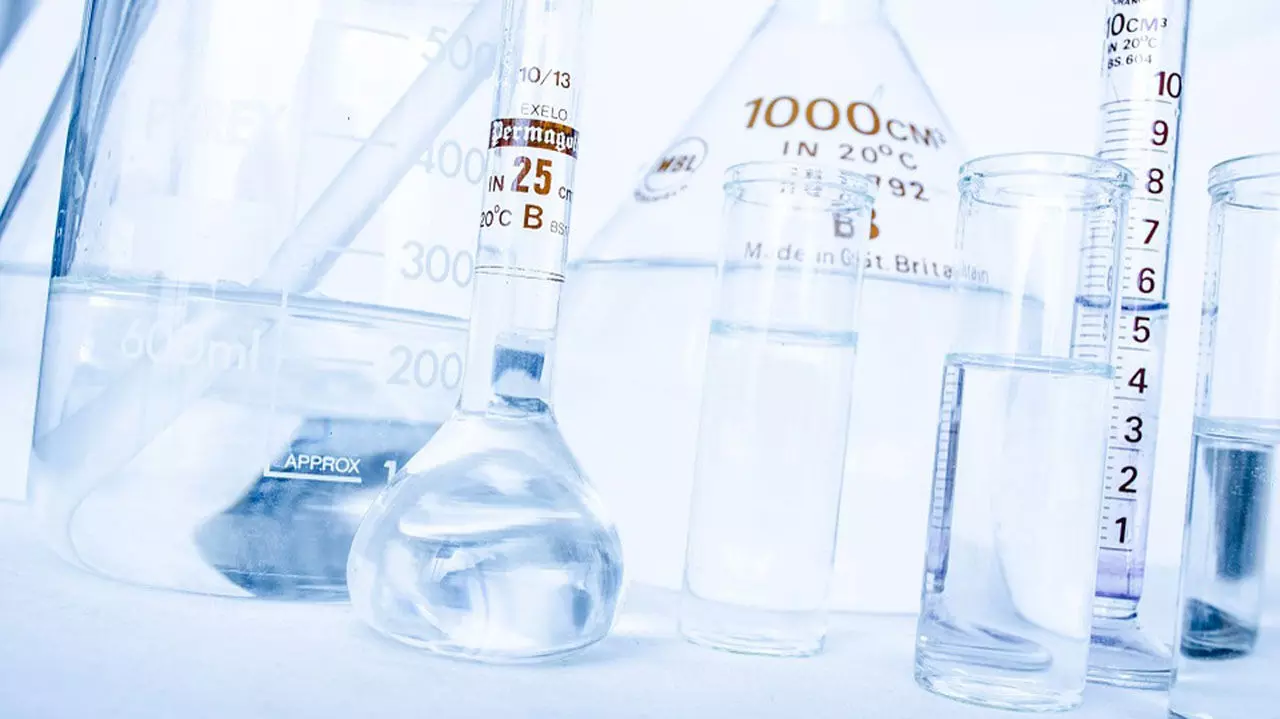Rep. urges Chartered Chemists to determine consequences of chemicals

The House of Representatives Committee Chairman on Health, Rep. Tanko Sununu has urged the Institute of Chartered Chemists of Nigeria (ICCON) to gauge the consequences of chemicals on humans.
Sununu made the call the on Wednesday in Abuja, at the 16th Mandatory Continuing Professional Development (MCPD) workshop of ICCON.
Sununu said that a lot of chronic diseases may be linked to the use of chemicals.
The workshop has the theme: "Safety and Health in the Use of Chemicals".
"It is worrisome that many young people come down with Chronic Kidney Disease (CKD) which should not be so.
"If you look closely as a medical practitioner, it may take you a longer time to find out what is the cause of that chronic kidney disease, but upon more interrogation, may likely be related to chemical interactions.
"So the relationship of chemicals and health is very obvious, its heal and also cause disease.
"This means that as a chemist, you must be able to draw a line. How do we make chemical to be efficient to humans, how do we risk the negative impact of chemical to the environment?", he asked.
Sununu said that the impact of the safety of chemical and health could never be separated, so all efforts must be put in place to ensure safe use of chemicals.
He also urged the institute to align with and collaborate with other agencies within its scope of practice and work within the ambits of the Act that established it.
In his keynote address, the National Security Adviser (NSA), retired Ma..-Gen. Mohammed Monguno, said that much needed to be done about educating people on the use and mixture of chemicals.
Represented by Dr Adeyinka Fasakin, Monguno said that education about the impact of chemicals should start in primary and secondary schools.
"Anywhere they do integrated or elementary science, we must put safety chemistry there because these are the people who will end up using hazardous chemicals.
"If you look around you will observe that these people we call battery chargers, they energise dead batteries, many of them are illiterates or did not go beyond primary school and they are handling concentartared sulphuric acid.
"Even at home, we all handle chemicals, in our cleaning agents and in our industries too, so there is need for training," he said.
Monguno, however, said that to ensure chemical safety, there must be regulations and enforcement.
According to him, a proper framework for chemical management should be established.
"We have many agencies managing one aspect of chemical safety in Nigeria.
"We must coordinate and control all these agencies and activities and make laws that will touch all aspects of chemical management to ensure safety of lives and properties," he said.
President of ICCON, Prof. Fanna Abdurrahman, said that sad chemical incidences have continued to negatively impact the chemical industry around the world.
Abdurrahman added that most of them occur due to the lack of proper safety and health strategies.
She added that the choice of the theme of the workshop was a direct response by ICCON to the issues of chemical safety, security and health.
"To this wise, I am glad to mention that the office of the National Security Adviser has began the implementation of the regulation on the inclusion of ICCON certified chemists as technical officers for application of End User Certificate to import high priority chemicals.
"This approval means that chemistry professionals are gradually taking back their roles in the chemical industry.
"Let me also inform members that this regulation has already created hundreds of jobs for chemists and it promises to be better", she said.
About enforcement of safety regulations, she said that the institute had concluded work on its regulatory framework which would highlight how it would carry out the duty.
The Registrar of the institute, Mr Wilford Jwalshik, said that it was the responsibility of chemists to analyse the composition of food or chemicals or any other product to tell the nation what that thing was made up of.
"They authenticate the genuineness of that particular product, so chemists must be given the rightful position in this country and that has commenced with the enlistment of the membership certificate of ICCON to control chemicals coming into this country."
Supreme reports that ICCON was established by ICCON ACT CAP 1.12 LFN 2004 (formerly Decree No. 93 of 1993) and charged with the responsibility of regulating the teaching, learning and practice of the chemistry profession in Nigeria.



